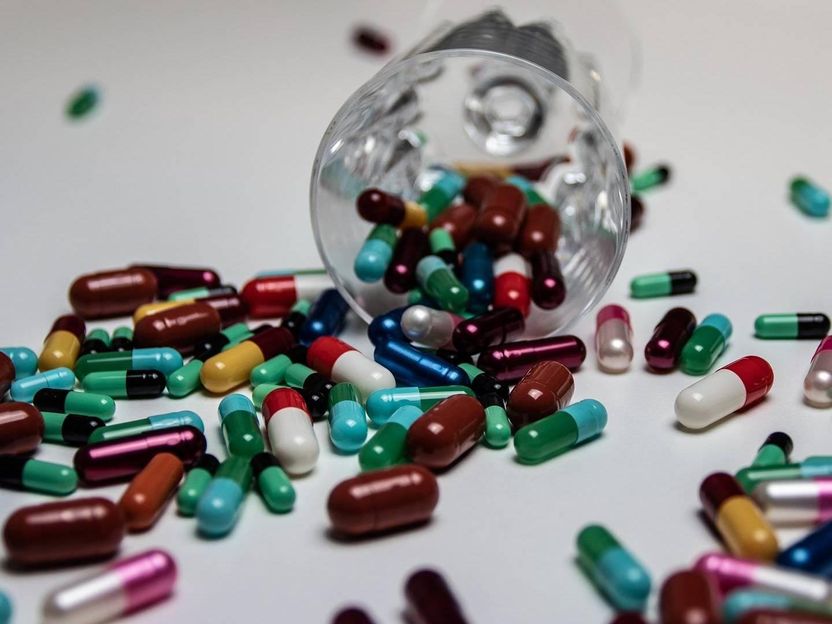Dietary supplements: positioning tips for health aides
Personalization instead of One-Fits-All
Advertisement
Six out of ten consumers in Germany regularly spice up their diet with dietary supplements (NEM) - e.g. vitamins or minerals. These health aids are available for little money in the form of capsules, tablets or dosed powders from pharmacies or drugstores. Stress in the everyday life or only time for Fast Food - for many a reason to help the health somewhat on the legs.

Bild von ElisaRiva auf Pixabay
However, the recently published Mintel Dietary Supplements Report 2022 also shows: many consumers prefer to take vitamins and minerals with food. The closure of cafes and restaurants during the pandemic has led to a growing awareness of healthy eating and a return to cooking a lot at home. Why take supplements when everything the body needs is also hidden in a delicious salad?
The market for dietary supplements has grown continuously in recent years and still has a lot of potential. At the same time, our surveys also show mistrust about the effectiveness of dietary supplements. To pick up the doubters, manufacturers should take consumers' wishes and fears to heart.
Natural ingredients create trust
Natural ingredients are one of the most important factors in food purchase decisions. Dietary supplements, on the other hand, often in the form of tablets and capsules, tend to be seen as pharmaceutical products and are perceived by consumers as less natural. One strategy for manufacturers, therefore, may be to make dietary supplements more similar to food in order to create acceptance.
For example, the Irish brand Athletic Greens offers an alternative to capsules and tablets: According to the manufacturer, the powder contains 75 vitamins, minerals and nutrients from whole foods, but no artificial additives. Mixed with water, juice or milk, it becomes a kind of green smoothie.
Organic ingredients can also help overcome health concerns. For products with organic ingredients, 62% of dietary supplement users believe they are healthier on the road than for products with conventional ingredients.
Personalization instead of one-fits-all
The social trend toward individualization is not stopping at the healthcare industry: customers today want more than a range of standard products, especially since no two bodies are alike. Instead, consumers are looking for products that are explicitly tailored to their needs and to which they themselves can add a personal touch.
The Mintel report shows: The majority of consumers take dietary supplements based on self-diagnosis. Manufacturers can provide orientation in the confusing market by offering advice. Online questionnaires can also help consumers find the right product. In addition, personal advice from nutritionists or medical professionals can help.
For example, the manufacturer Wild Nutrition offers a 60-second quiz to help customers find the right product. There is also the option of booking an appointment with a nutritionist.
Cleverly combined: Highlighting multiple benefits of dietary supplements.
When asked about the reason for taking dietary supplements, over half (56%) of NEM consumers say they want to strengthen their immune system. Accordingly, unsurprisingly, the market for immune health supplements is already quite saturated. At the same time, the Mintel report shows: consumers who strengthen their immune system with tablets & co are significantly more likely to also take dietary supplements for other purposes: for example, to support the brain and nervous system, cardiovascular or digestive health.
One possible strategy for manufacturers, for example, is to advertise not only a product's effect on the immune system in general, but also other positive effects, such as on gut health. Recent studies also show that prolonged fatigue weakens the immune response. This opens the door for manufacturers to emphasize the importance of energy for immune health.
Further, manufacturers can address seasonal needs, such as immune support in winter or sun protection in summer.
For example, the D+ for Care brand describes its Aloha Prepare product as a summer supplement to boost skin melanin and offer a perfectly tanned complexion.
Note: This article has been translated using a computer system without human intervention. LUMITOS offers these automatic translations to present a wider range of current news. Since this article has been translated with automatic translation, it is possible that it contains errors in vocabulary, syntax or grammar. The original article in German can be found here.


































































